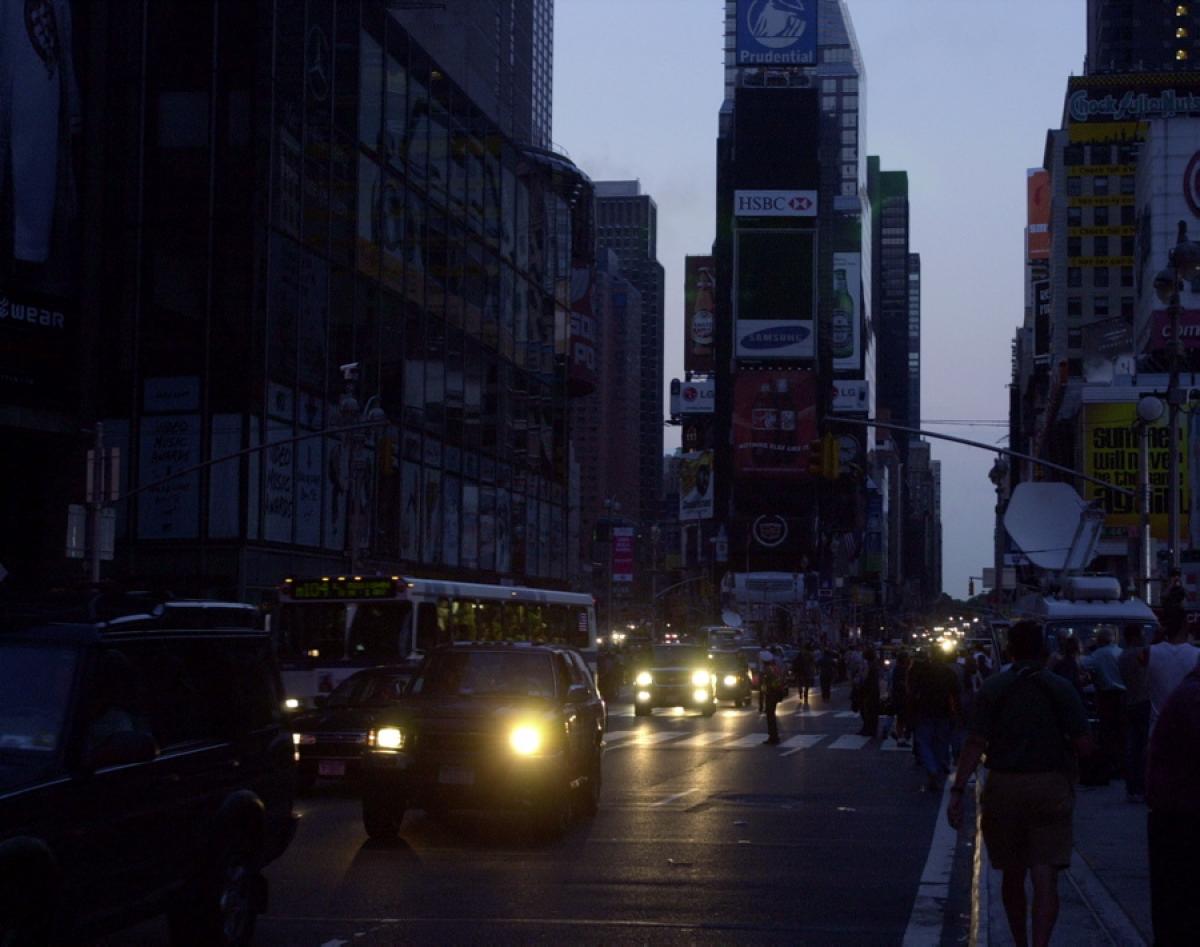
10 years ago, on 14th August 2003, a combination of minor faults on power infrastructure led to a huge power outage that left over 55 million people in North America without power for as long as four days. In this post, I will give an overview of how people reacted and the long-term impact of the event. In particular, I will consider how the loss of power is analogous to the loss of the web as a convenience, a luxury, and as a life-supporting mechanism. By making these connections, we should be able to get a better understanding of the anthropological and economic issues at hand, as these are very pertinent to how society has used both electricity and the web in human and economic development.
Donald was one person who experienced four days of the blackout. He told his story, detailing the troubles with living without electricity for four days. He lived in Detroit and was at work when the power went out. Donald couldn’t continue work, nor could he make phone calls, because the networks were unavailable. The drive home was dangerous because there were no traffic lights. Donald had very little food reserves, nor any way to cook. He was not at all prepared for loosing a resource that he had not considered would simply stop. He had to make plans to leave and had to prepare for looting:
With only the couple snacks we had left, I knew Monday we had to get somewhere west of Brighton. We simply didn’t have any food left. I heard a story about a lot of looting on the news, but that story didn’t repeat. It must have been true. My Beretta 9mm was dutifully holstered to my hip at that point.
Donald Alley - http://www.examiner.com/article/remembering-the-northeast-blackout-of-2003-ten-years-later
Donald’s experience echoed the experiences of millions. The initial nonchalant reaction of “oh, it’s just a power cut” gradually became a sense for survival: the urgent need for basic sustenance – food, water, shelter. The initial reaction of “great, a day off work” was undermined by the following few days of an inability to work, with estimates putting the economic cost between $7 and $10 billion [1].

Would losing web would result in such extreme consequences?
Survival-motivated crimes, such as looting, are a result of loss of basic needs. Could loosing the web for an extended period of time foster this kind of reaction? If we consider the UK alone, approximately 87% of the population are internet users. In fact, almost all people aged 16-44 have used the internet. It’s pervasively used and we depend on it for communication, reading the news, and even for delivering us life-saving information. The web has been considered a tool for promoting freedom of expression and it might further be considered that internet access itself is a human right. The web might not have existed long enough to provoke rioting at it’s disappearance, but our dependency upon it would certainly lead to public disquiet.
And in terms of the economy, vast amounts of business has been transferred onto the web. It is by design easier and more efficient to work on the web, where data is easy to share and collaborate on. Many people could not work during the blackout because their work is based online. If the web were to disappear, we would face a similar economic disruption: work could not take place because current business infrastructures require the web to work. The economy has been affected by the web since it’s earliest days, when we experienced huge investment in the internet sector leading to the dot-com bubble, which then burst, leading to the failure of many technology companies (for example, Cisco’s stock declined by 86%).
The availability of electricity and the web are intrinsicly related issues in terms of the influence they have on society and the economy. From large-scale power outages, we can gain some insight into what the consequences of a web doomsday might be. We might not yet be aware of our dependency on the web, just as Donald was not aware of his dependency on electricity to give him his basic needs. This raises some interesting questions. Should we work to gain a better understanding of what we use the web for and how we are dependant on it, and from this, ensure that we can sustain ourselves without access? And in terms of the economy, should businesses be prepared for the loss of the web, so as to not lead to economic disaster in such a case?
In the next post, I will discuss how censorship in some countries (specifically the great firewall of china) is analogous to the lack of web availability. In this, I will consider how people have reacted and what the long-term effects have been.
[1] ICF Consulting, “The Economic Cost of the Blackout: An Issue Paper on the Northeastern Blackout, August 14, 2003.”